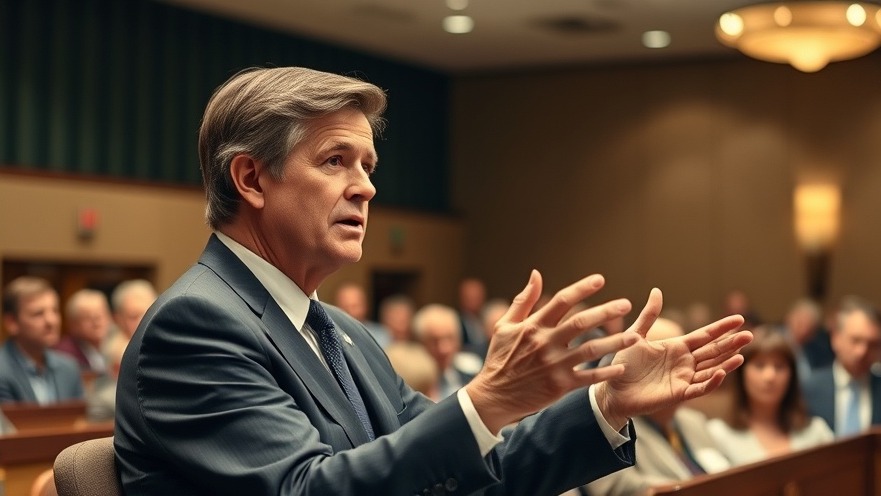
Robert F. Kennedy Jr. Restructures Vaccination Guidance for COVID-19
In a notable shift, Health and Human Services Secretary Robert F. Kennedy Jr. has announced the removal of the Centers for Disease Control and Prevention's (CDC) recommendation for COVID-19 vaccination for both children and pregnant women. This decision has sparked widespread dialogue about the implications of his announcement and could signify a broader shift in public health policy.
Unpacking the Announcement: Implications and Reactions
During his announcement, Kennedy expressed relief, declaring: "I couldn't be more pleased to announce that, as of today, the COVID vaccine for healthy children and healthy pregnant women has been removed from the CDC's recommended immunization schedule." This statement has left many stakeholders questioning the immediate impact on vaccine availability and public health recommendations.
While Kennedy's decision has garnered praise from some circles advocating for personal freedom regarding vaccinations, many health experts have raised concerns. The CDC has not yet updated its immunization schedule to reflect this significant change, and it remains unclear why Kennedy chose to bypass ongoing discussions with the Advisory Committee on Immunization Practices.
Why This Matters: The Link Between Recommendations and Public Health
Vaccination guidelines hold great weight in healthcare coverage and liability protections for insurers. A sudden alteration to these guidelines, especially concerning a global pandemic, could affect millions. As data suggests that certain groups, particularly pregnant women and young children, face unique risks associated with COVID-19, the implications of Kennedy's announcement could be far-reaching.
Experts had anticipated a pending decision regarding the integration of pregnant women into this guidance. Their exclusion, coupled with Kennedy's assertion that the “COVID-19 pandemic is behind us,” raises concerns about the message it sends regarding the current state of the virus and the necessity of vaccinations.
Current Landscape of COVID-19 Vaccinations
Despite the CDC's standard guidance that may no longer reflect Kennedy's recent directive, COVID-19 vaccines are still accessible. For many parents and pregnant women who are considered high-risk, the option to vaccinate still remains. However, with Kennedy's recent policy changes, clarity and comprehensive communication regarding vaccination will be crucial.
In addition to COVID-19 guidance, Kennedy has also withheld approval on other immunization recommendations related to respiratory syncytial virus (RSV) and meningococcal vaccines. Normally, the CDC’s recommendations would follow a systematic evaluation process, which has not been the case under the current administration.
Broader Context: The Role and Challenges of Public Health Guidance
As discussions continue around COVID-19 regulations, this shift presents an opportunity to evaluate the interplay between political leadership and public health. Critics argue that loosening restrictions could pave the way for misinformation and skepticism regarding vaccines, undermining years of public health advocacy.
In this political landscape, where public trust in health officials is tenuous, it is crucial that decisions made by authorities align with scientific recommendations and public health needs. Engaging with the community and fostering informed dialogues are essential strategies for rebuilding trust.
Future Predictions: Will Other Vaccination Guidelines Follow Suit?
With the announcement's potential to influence other immunization schedules, observers are left to speculate whether similar decisions will follow. The scrutiny placed on vaccination policies could usher in a broader trend toward personal choice over public health recommendations, which poses its risks and rewards.
The assurance that children and mothers can make informed choices regarding their health is paramount. However, with new guidelines reflecting an increased freedom, it’s essential that these decisions come backed by sound scientific research and health warnings.
Your Role in the Vaccination Conversation
As stakeholders in this evolving public health narrative, it's important for individuals to advocate for their communities. Understanding vaccine science and the implications of guidance changes can help inform personal choices and community health strategies.
Staying active in the discussion surrounding public health measures is vital to ensuring that all voices are heard.
 Add Element
Add Element  Add Row
Add Row 



 Add Row
Add Row  Add
Add 


Write A Comment